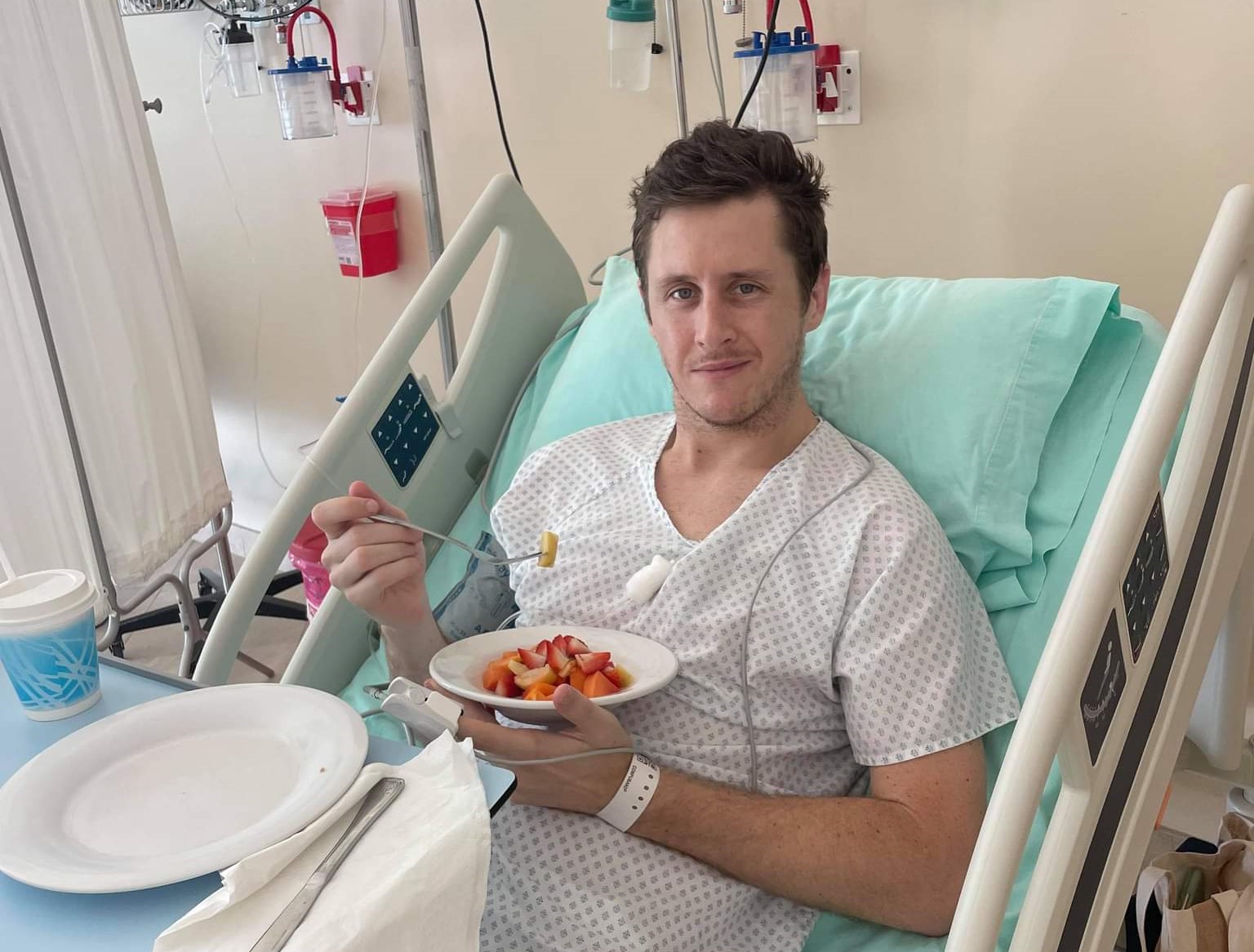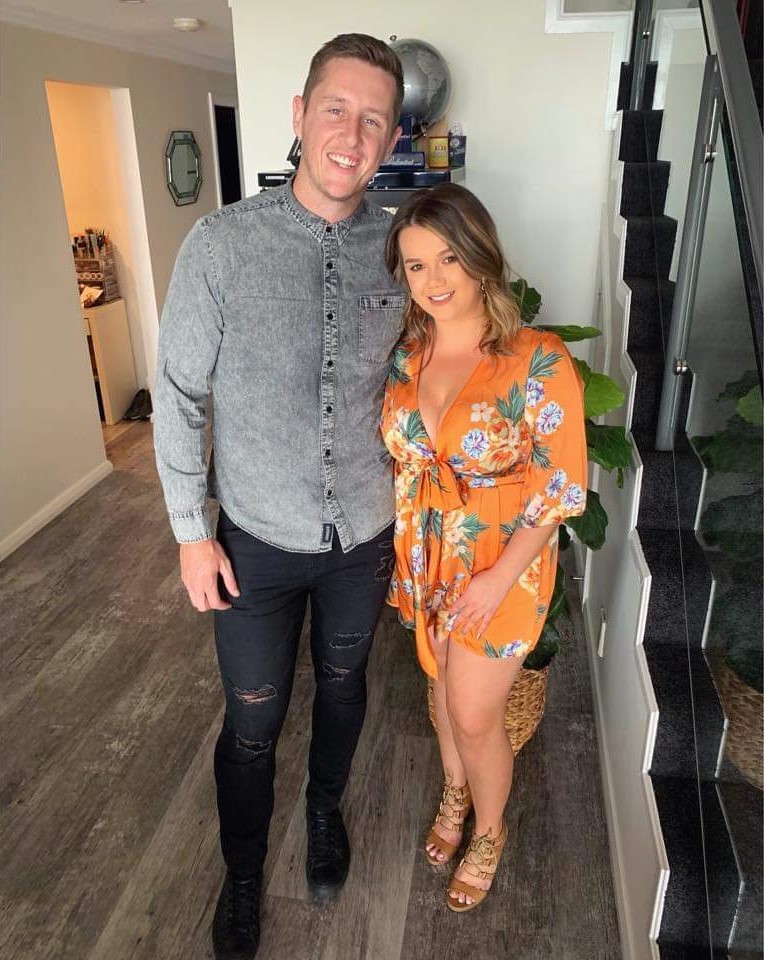
In 2020, Terry was an adventurous and active 28-year-old who loved to go on bushwalks with his fiancé Monique. He was working as a disability support worker, going to the gym every day, coaching rugby league three nights a week and playing touch football on the other nights.

Terry and his fiancé Monique before he became ill
He was living in Dudley, a southern coastal suburb of Newcastle when he was bitten by a tick. In late 2020, he started to develop symptoms such as extreme fatigue, loss of balance and chronic insomnia.
Terry saw a few different doctors and specialists over the next six months trying to get a diagnosis. After meeting three different GPs, a rheumatologist and a cardiologist, Terry was seeing a physiotherapist for the pain in his neck which was getting worse and worse.
“I was talking to my physio about my symptoms when another physio overheard and said I should look into vector borne or tick-borne illnesses as a possibility,” said Terry.
Terry took this suggestion to his GP who told him there was no point testing for this because there was “no such thing” here in Australia.
Terry was bedridden for the next few months and could barely sit up or move. He had no energy to walk across his bedroom and could only shower once a week at most.
“Life was so hard at the time because I could barely move, but nobody was helping me and nobody was believing that there was something really wrong with me,” said Terry.
He finally convinced a GP to run some tests and when the results came back, they showed a recent infection. Terry insisted on getting more tests done but when they too came back positive, the GP said it must have been a false positive.
After extensive searching, in August 2021, Terry finally found a doctor who understood his plight. He travelled to Sydney to meet him and learn more and start a course of treatment. He started antibiotics which helped him a little but were not a permanent fix.

Terry after losing weight from his illness
In September 2021, Terry joined the research study at Royal North Shore Hospital and in October, Terry travelled to Mexico for hyperthermia treatment to help with his symptoms and to try and resolve ongoing issues with multiple co-infections.
“I’ve been seeing improvements in how I feel since I got back and since joining the study at Royal North Shore Hospital under Dr Richard and Dr Bernie and for that, I’m very grateful.”
Terry and Monique are hopeful that his involvement in this study will shed a light on how important it is for Australia to develop proper diagnostic pathways for people with tick-borne disease. He would like to see things change in Australia for future patients so that it doesn’t take months of confusion before people are given answers and treatment.
Click here to donate to the tick-borne disease research project.

